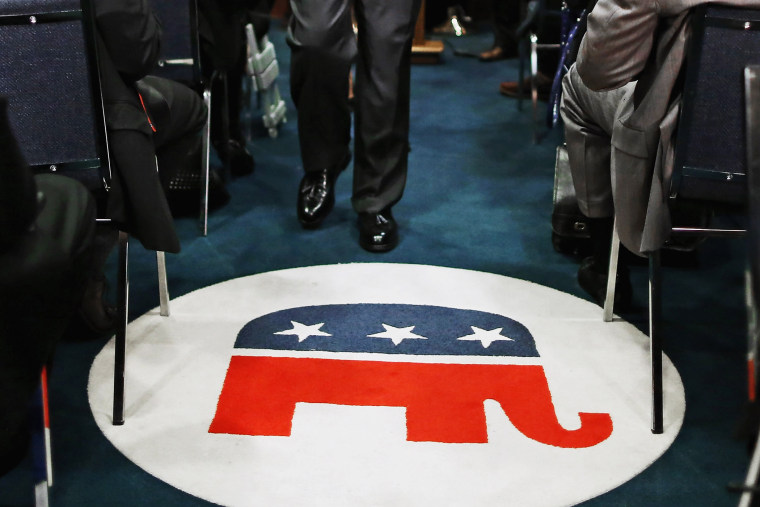When Reince Priebus was the chair of the Republican National Committee, he'd occasionally make an effort to reach out to African-American voters. Especially after the 2012 election, Priebus was convinced his party faced demographic challenges that needed to be addressed, and so we'd see the RNC chair make visits to inner-city churches, for example, urging communities of color to keep an open mind.
It was a tough sell Not only did Priebus have to contend with Republicans' recent history of exploiting racial animus for partisan gain, but even as the RNC conducted the outreach, Republican officials were waging a political war against the first African-American president and taking steps that directly hurt black voters, such as approving new voter-suppression measures.
But as difficult as this was for Reince Priebus, the RNC's job is even harder now. The Detroit News had this report earlier in the week:
The timing couldn't have been more awkward.Ronna Romney McDaniel, chairwoman of the Republican National Committee, came to Detroit on Monday to try to reach out and attract African-American voters to the GOP.But her visit came 48 hours after a violent and deadly weekend of rioting in Charlottesville, Va., where white supremacists and neo-Nazis gathered to protest the removal of a statute of Confederate Gen. Robert E. Lee.
At that point, Donald Trump -- best known for using a racist conspiracy theory to rise to prominence in Republican politics -- had already condemned "both sides" for violence in Charlottesville. But the day after Ronna Romney McDaniel's outreach effort in Detroit, the president publicly defended the "very fine people" among the racist activists.
And all of this was before Trump started expressing his affection for Confederate monuments -- the "beauty" of which, he said, is irreplaceable.
I don't imagine this make the RNC's outreach efforts any easier.
Almost exactly a year ago, Trump made a prediction about his re-election campaign in 2020: "At the end of four years, I guarantee you that I will get over 95 percent of the African-American vote. I promise you."
The president should probably lower his expectations.
